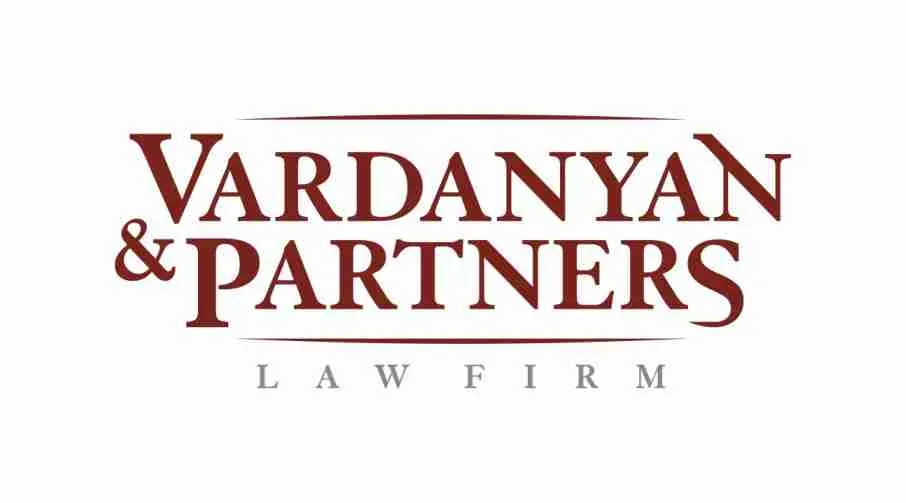Taxes in Armenia
Foreign entrepreneurs and investors value the rapidity of economic reforms, the safety, freedom, and openness that Armenia offers. Many prefer to visit Armenia in person and register a business as a first step to enter the market. This initial step often involves dealing with various main taxes, including income tax, profit tax, and valued added tax. This page provides comprehensive information on taxes in Armenia, ensuring you are well-informed about corporate tax rates, personal income tax, valued added tax (VAT), and more. Understanding the Tax Code and how it applies to taxable income and profit is vital for businesses.
Micro-businesses, companies operating within free economic zones, industrial zones, select border towns, and villages can benefit from a zero-tax status. Similarly, smaller businesses with annual sales under approximately $298,000 are subject to a nominal sales (turnover) tax, ranging from 1.5% to 10%. Remarkably, Armenia follows a lenient tax policy regarding individual capital gains from the sale of securities, real estate, and various assets. Additionally, other income such as insurance and pension payments are exempt from taxation, as are gifts, inheritances, and net worth.
Stay informed with our newsletter—get the latest news, legal updates, and expert advice on citizenship
Disclaimer: Please note that the original content of the website is in English, and translations into other languages are provided through an online translation tool; for precise information, please refer to the English text.
1. Business Tax Options
In Armenia, taxation varies based on the size of the business. Medium and large businesses adhere to standard tax rates, whereas smaller enterprises can benefit from special tax regimes designed to alleviate both the tax burden and paperwork.
Companies can opt for turnover tax or micro-business regimes within 20 calendar days following the registration of the company.
By default, businesses are subject to the general tax regime, which includes an 18% corporate income tax (CIT) and a 20% value-added tax (VAT). Value added tax is reduced to 0% for goods or services that are exported. Under this regime, CIT returns are filed annually, while VAT returns must be submitted on a monthly basis.
Turnover tax is a form of a sales tax, with rates typically ranging from 1.5% to 10%. It serves as a replacement for both CIT and value added tax. Additionally, businesses operating under this tax regime will have the option to reduce expenses by up to 9% from their taxable gross income, resulting in an actual tax rate ranging from 1% to 10%.
However, this tax regime is only available to small businesses with annual sales totaling less than AMD 115 million (approximately $298,000). Turnover tax returns are filed quarterly.
Micro-businesses, defined as those with annual sales below AMD 24 million (about $62,000), enjoy exemptions from both CIT and VAT.
It’s important to note that certain businesses, such as those located in the capital city of Yerevan and various service sectors, are excluded from this tax system and cannot take advantage of these exemptions.
Armenian government has proposed legislation, which outlines robust state support for individuals and entities working in high-tech industries, including IT. Eligible for this support are:
Commercial organizations registered in Armenia, including branches of foreign companies operating within the country (excluding economic partnerships and subsidiary companies).
Private entrepreneurs (Individual entrepreneur) registered in Armenia.
The key benefits of the proposed state support are:
Tax Incentives for Labor Migration and Youth Employment:
Companies that hire skilled labor migrants (a foreign national or stateless individual legally authorized to perform professional work in the Republic of Armenia) as professional employees will receive government support covering 50% of the income tax on these employees’ salaries.
For new hires under 30 entering the high-tech sector for the first time, companies employing up to 30 people will receive a 100% income tax offset on these salaries. For companies with more than 30 employees, this tax relief is set at 50%.
Reduced Turnover Tax:
Recognizing the unique needs of high-tech companies, the government plans to introduce a 2% turnover tax rate (reduced from 5%) for businesses in this sector, making Armenia one of the most tax-friendly environments for high-tech and IT companies in the region.
Educational and Training Reimbursements:
The government will also cover a portion of education and training costs for companies that invest in their employees’ professional development in high-tech roles. This reimbursement will cover 50% of income tax on salaries for organizations with an average of up to 30 employees, and 25% for organizations with more than 30 employees.
This comprehensive support package will be available from January 1, 2025, through January 1, 2032, underscoring the Armenian government’s commitment to fostering a long-term, sustainable high-tech sector and ensuring that taxpayers - including non-residents and foreign citizens - benefit from favorable income tax rates.
Contact Us for Assistance
Whether you have a specific concern or just need some preliminary advice, our team is here to help. Fill out the form below, and one of our experts will reach out to you shortly. No strings attached, and absolutely free.
Prefer to talk instead? Click the button below to book a free call with one of our experts at a time that works for you.
Your Privacy Matters to Us
Rest assured, any information you provide will be treated with the utmost confidentiality. We firmly believe in the principle of data privacy. That means we will not sell, rent, or lease our contact lists to any third party, and your personal details will never be handed over to individuals, government agencies, or companies.
2. Payroll Taxes in Armenia
Employers are required to withhold both personal income tax (PIT) and social security contributions from an employee's monthly gross income. This encompasses various forms of income such as salaries, benefits, bonuses, temporary disability compensation, and maternity leave compensation.
As of 2024, the rate of the personal income tax in Armenia is 20% and applies to all forms of compensation, regardless of the amount involved.
Apart from PIT, employers are also responsible for deducting social security payments. The rate for these payments stands at 5% for income up to 500,000 AMD (approximately $1,309) and 10% deducted 25,000 AMD for income exceeding this threshold.
It’s important to be aware that there’s a maximum salary limit for social security payments, currently capped at 1,125,000 AMD per month (equivalent to 15 times the minimum monthly wage of 75,000 AMD).
Military taxes are withheld in the following manner:
· 1,500 AMD ($4) for salaries of up to 100,000 AMD ($261)
· 3,000 AMD ($8) for salaries of 100,000-200,000 AMD ($523)
· 5,500 AMD ($14) for salaries of 200,000-500,000 AMD ($1,309)
· 8,500 AMD ($22) for salaries of 500,000-1,000,000 AMD ($2,619)
· 15,000 AMD ($39) for salaries in excess of 1,000,000 AMD ($2,619)
It’s important to note that social security payments and military taxes are obligations that exclusively apply to Armenian citizens and residents (i.e. individuals holding residence permits). Generally, those born before 1974 enjoy an exemption from social security payments.
For instance, in the tax year 2024, consider an employee earning a monthly salary of AMD 600,000 (equivalent to $1,571). This individual will be subject to a flat income tax rate of 20% on their entire income, amounting to income tax of AMD 120,000 (approximately $314). Furthermore, the employee will be liable for social security payments totaling 35,000 AMD (around $91) and an additional military tax of 8,500 AMD (approximately $22). Consequently, the after-tax income for this individual will be AMD 436,500 (calculated as 600,000 - 120,000 - 35,000 - 8,500), which is equivalent to $1,143. This results in an overall tax burden of approximately 27%.
3. Import Taxes
In Armenia, typically, there’s a 20% Value Added Tax (VAT) applied to imported goods, although some goods enjoy exemptions from this tax. Notably, for goods imported under government-approved projects, there’s an option to defer VAT payments for a period of up to three years.
Moreover, Armenia is part of the Eurasian Economic Union (EAEU), which includes countries such as Russia, Belarus, Kazakhstan, and Kyrgyzstan. Importantly, goods imported from these EAEU member countries are exempt from import duties.
However, when importing goods from countries outside the EAEU, import duties are imposed based on rates set by the EAEU Commission.
Armenian companies may be subject to various taxes based on their specific economic activities. These taxes can include excise tax, environmental tax, road tax, as well as real estate and vehicle property tax in Armenia. Additionally, individuals and entities that own real estate properties are responsible to pay property tax based on the assessed value of their properties.
4. Tax Legislation
The Tax Code of Armenia serves as the foundational legal framework that governs the assessment and collection of taxes within the country. It outlines the regulations for income tax, profit tax, property tax, and value-added tax (VAT), among other main taxes.
The code is designed to support the state budget by defining taxable income, tax rates, and the obligations of taxpayers, including the direct tax paid by individuals. It emphasizes transparency and fairness in the administration of taxes to protect the vital interests of both the government and the taxpayers.
The Tax Code also provides guidelines for tax agents and legal services involved in tax matters, ensuring that all business entities and individuals are compliant with Armenian tax laws.

